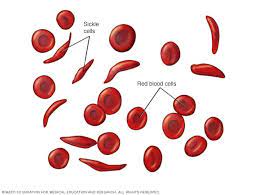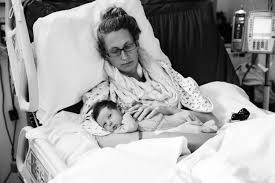
The guilt of mothers with sickle cell children
For anyone who has someone living with sickle cell in their family, it is pretty disruptive for all those living in that household. For those who know, a sickle cell crisis can sometimes be unpredictable in terms of timing and intensity. By that I mean I could have a crisis suddenly and hope plus pray that it would not be one whereby I have to go to the hospital. I will start by taking very basic tablets like paracetamol. However, this crisis could escalate in a very short space of time, and this would mean me deciding if I should take something much stronger at home in tablet form or go to a pain clinic and have this strong analgesic given to me through my veins.
I therefore can’t imagine what it must be like for a mother who has a child or children living with sickle cell. Everyone was created differently by God and by that I am talking about our emotions and the ability to withstand a challenging situation. For example, I am the sort of person who when in a crisis I would be calm on the outside and composed. But within my soul, I could be freaking out. However, you would never know by looking at me. Maybe this is because as someone living with sickle cell, I have had to know how to control the manifestations of my pain sometimes when I’m at work.
Back to mothers, some of them may be able to handle seeing their offspring crying because he or she is in excruciating pain. Some may not be able to handle seeing the child in pain. Irrespective of what camp a mother is, one thing that they will have in common is the feeling of guilt. I know that a lot of children living with sickle cell grow up blaming their parents, their mothers especially, for the suffering that they’re having to endure because of sickle cell.
On the opposite side, the mother too is going through feelings of guilt. They question themselves and ask themselves if they are good mothers. This is all because mothers are told that they’re the ones responsible for their children’s health and well-being. So, when a child is not well, the mother feels that it is her fault. This can lead to feelings of insecurity, grief, and shame on the mother’s part. For instance, every time she has to call the school to say her child is not well again and again.
There is also the love that a mother has for her child and seeing her child sick brings about feelings of blame and failure. The mother will naturally start going through the last 24 hours to reflect on what she didn’t do that she should have done. This leads the mother to blame herself for her child being sick. Sometimes, the mother, while wanting to protect her child, may compound the child’s anxiety. The mother may not allow him or her to explore the outside world, which in later years will affect the child if and when he or she leaves home.
A child being sick from a young age will ultimately make the mother and the child have an unhealthy relationship, one of co-dependency. This is not the case of course for all mothers but I do see this quite a lot when I counsel people. When I talk about co-dependency, it’s the child growing up and expecting her mother to leave her job and other commitments because he or she is sick. On the other hand, since the mother is blaming herself already, she will not think twice either about not going to work or canceling her commitment because of her child. I can assure you that this isn’t healthy. If adjustments need to be made in the home, most of the time it is the woman who would have to make that sacrifice.
Sometimes, if the child is extremely sick when young, the mother may have to decide about continuing work, working part-time, or resigning completely. These adjustments that a mother may have to make because of her child, who lives with sickle cell, can equally bring about resentment from the mother to the child. And occasionally, one might have a mother who is in denial about her child’s health and fight the medical team by totally disregarding every piece of advice given to her.
My unsought advice to mothers is to first of all take a deep breath when your child has a crisis; tell yourself that your best is good enough; try not to be a perfectionist; understand that this is your child’s path and he or she has to accept the fact that they live with sickle cell; remind yourself that you still have a lot to offer your child in the future as they grow up and leave home and do not isolate yourself at home. Lastly, find someone to confide in about your feelings.
As an adult, I have come to realise that no matter how best I look after myself, I will sometimes have a crisis.
If you would like to get in touch with me about Sickle cell, do so, via email: t.dehinde@yahoo.com. And do checkout my blog: https://www.dailylivingwithsicklecell.com/ My book on Sickle Cell – HOW TO LIVE WITH SICKLE CELL and my other books are available for purchase on www.amazon.com
Punch





